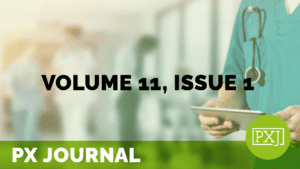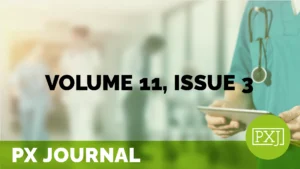Resource utilization among informal caregiver of lung cancer patients undergoing treatment

The objective of this study is to explore patient and caregiver factors that shape the use of available resources to support caregiving for lung cancer patients undergoing treatment. A mixed-method study was conducted at one regional cancer centre within the Province of Ontario, Canada, using concurrent triangulation design. Adult patients with lung cancer (n=46) and their caregivers (n=42) (37 patient-caregiver dyads) were invited to complete a one-time study survey. Informal caregivers (n=20) also participated in a one-time semi-structured interview. Descriptive statistics and Pearson’s correlation were used to examine patterns of resource utilization and associations among study variables. Content analysis was conducted to analyse data from interviews. Informal caregivers demonstrated low overall resource utilization. Education materials and homecare support were the most frequently used but perceived as minimally helpful. Homecare support was associated with negative overall experience. Least used resources included paid help, caregiver support groups and volunteer drivers but volunteer drivers were associated with less caregiver burden. Qualitative analysis revealed three themes (1) emotional labour of caregiving and respite from known contacts, (2) perception of formal resources as inappropriate for non-medical needs and (3) financial needs and role conflicts remain to be overcome. Informal caregivers are most likely to turn to known existing social networks for support as a result of accessibility and convenience, which are central to addressing most caregiver needs except for financial needs and role conflict. Future research should aim to remove barriers to resource utilization and strengthen existing support and resources.
Related content
-
 Patient Family & Community Engagement
Patient Family & Community Engagement“Not Your Father’s Heart”: How Healthcare Discrimination for Neurodivergent Patients Taught Me About the Human Experience
It is easy to assume all patients who come into a hospital for acute crisis care have a clear understanding of how their experience will be facilitated. When a patient is neurodivergent, they cannot always agree to needed intervention. This is exacerbated by the “poor timing” of questions portrayed to impact the critical care received,
Learn more -
 Patient Family & Community Engagement
Patient Family & Community Engagement“You May Not Appreciate This Now, But You May Later”: A Qualitative Analysis of the Impact and Meaning of Legacy Interventions as Defined by Bereaved Parents
The death of a child is a significant event that affects the family system. Families of dying children need comprehensive support to help them cope with their trauma and loss. However, there is little research that examines parental preferences and grieving support needs. This study explored bereaved parent mentors’ perspectives on legacy interventions to identify
Learn more -
 Patient Family & Community Engagement
Patient Family & Community EngagementPX Chat on PFA/PFACS: Revitalizing/Rebuilding
12pm ET / 11am CT / 10am MT / 9am PT – Join The Beryl Institute community for an opportunity to connect with your peers on the support and resources needed to address efforts around revitalizing and rebuilding PFAs and PFACs in their organizations. Breakout discussion groups allow you to share your challenges, celebrate your
Learn more
